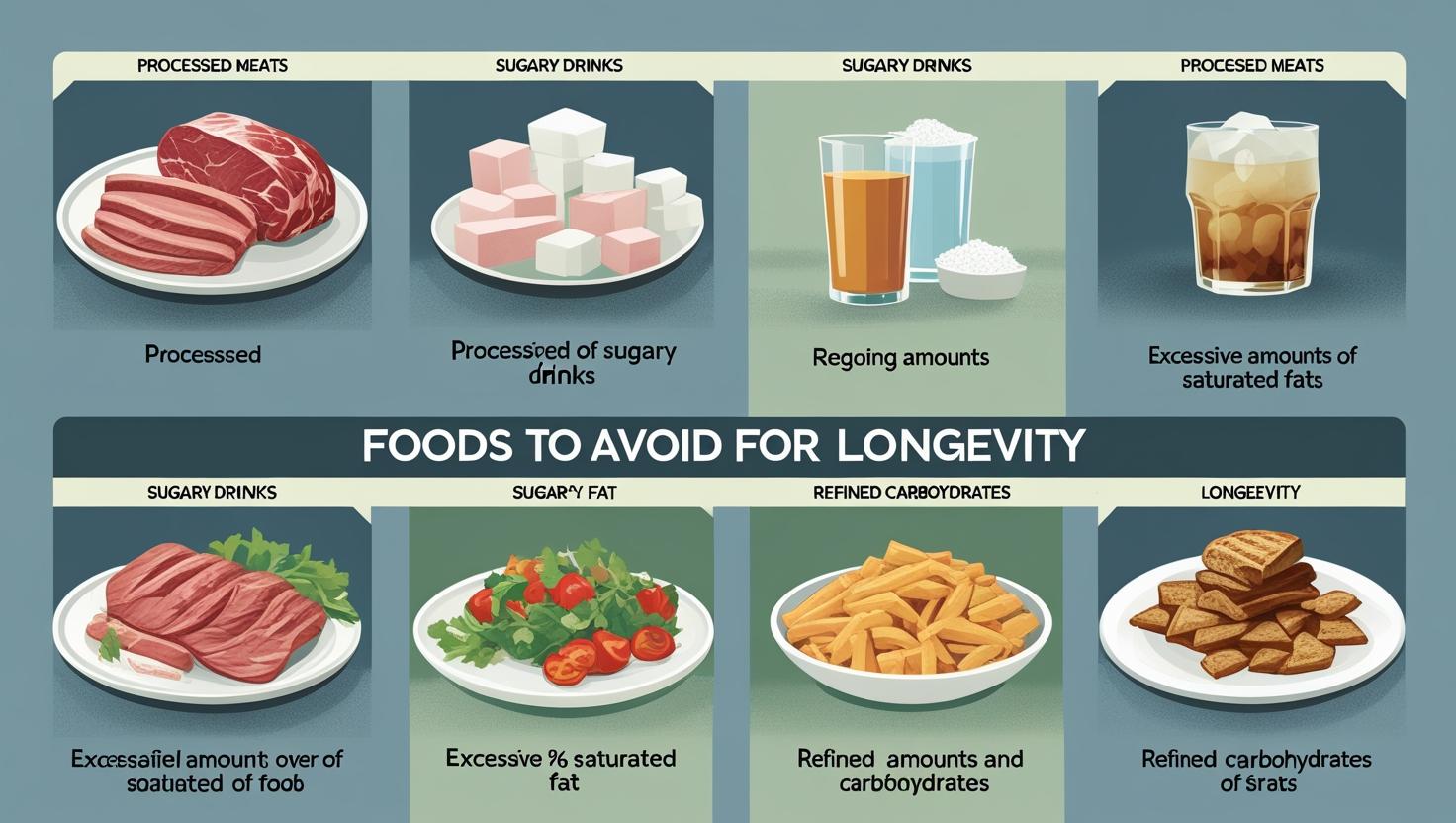The best diet for longevity is backed by science. Learn how foods like vegetables
Can You Eat Your Way to a Longer Life?
What if the secret to a longer, healthier life isn’t in a pill — but on your plate? Research shows that diet plays a crucial role in longevity. Around the world, the people who live the longest often share one thing in common: a consistent, nutrient-rich diet focused on whole foods and plant-based ingredients.
In this article, we’ll dive into the best diet for longevity, drawing insights from the world’s longest-living communities, the latest scientific studies, and advice from nutrition experts and medical doctors.
🧬 What is the best diet for longevity?
The best diet for longevity is a nutritional approach designed not just to prevent disease, but to promote a longer and healthier life. According to Dr. Valter Longo, a biochemist and longevity researcher at the University of Southern California, the longevity diet is a blend of plant-based eating, moderate protein intake, and intermittent fasting patterns.
“The goal is not just living longer but living healthier. We want to extend the healthspan, not just lifespan,” — Dr. Valter Longo, The Longevity Diet
🌍 What We Can Learn From the Blue Zones
The Blue Zones are five regions in the world where people live significantly longer than average:
-
Okinawa, Japan
-
Ikaria, Greece
-
Sardinia, Italy
-
Nicoya, Costa Rica
-
Loma Linda, California (USA)
These populations share common dietary patterns:
-
High intake of vegetables, beans, and legumes
-
Minimal processed food
-
Limited meat and dairy
-
Moderate alcohol (especially red wine)
-
Daily movement and low stress
Lesson: A mostly plant-based diet filled with fiber, antioxidants, and healthy fats is common among the longest-living people on Earth.
🥗 Components of the Best Diet for Longevity
Let’s break down the specific foods and habits that make up the best diet for living longer:
1. Whole Plant Foods
Why? Rich in fiber, antioxidants, and micronutrients that reduce inflammation and support cell health.
-
Leafy greens (spinach, kale, arugula)
-
Cruciferous vegetables (broccoli, cauliflower)
-
Fruits (especially berries and apples)
-
Whole grains (quinoa, brown rice, oats)
-
Legumes (beans, lentils, chickpeas)
📌 A 2022 study in PLOS Medicine found that replacing a Western diet with a plant-based longevity diet could add up to 10–13 years to your life.
2. Healthy Fats
-
Avocados
-
Nuts and seeds (almonds, walnuts, flaxseeds)
-
Extra virgin olive oil
-
Fatty fish (salmon, sardines, mackerel)
🧠 Omega-3 fatty acids have been linked to reduced cognitive decline and lower risk of heart disease.
3. Moderate Protein — Mostly from Plants
While protein is essential for muscle and tissue repair, excessive animal protein (especially red meat) has been associated with increased aging markers. Plant-based protein from beans, tofu, lentils, and tempeh is linked to reduced inflammation and improved metabolic health.
✅ According to Harvard Medical School, getting most of your protein from plants can lower your risk of death from heart disease and cancer.
4. Fermented Foods & Gut Health
-
Yogurt with live cultures
-
Kimchi, sauerkraut, miso
-
Kefir
-
Tempeh
A healthy gut microbiome supports immunity, reduces inflammation, and may influence longevity.
5. Low to No Processed Foods
The more whole and less processed your food is, the better. Avoid:
-
Packaged snacks
-
Refined sugars
-
Soda
-
Fast food
These contribute to chronic diseases like diabetes, cancer, and cardiovascular disease — all of which shorten lifespan.
🧪 What the Experts Say for the best diet for longevity
-
Dr. David Katz, founder of the True Health Initiative, says, “The optimal diet for health and longevity is one composed largely of minimally processed plant foods, and the evidence is overwhelming.”
-
National Institute on Aging (NIA) recommends plant-rich diets, healthy fat intake, and calorie moderation as key elements for longevity.
-
A study published in Nature Aging (2021) emphasizes caloric restriction without malnutrition as a scientifically supported intervention for increasing lifespan in mammals.
🕑 Timing Matters: Intermittent Fasting & Longevity
Several longevity researchers, including Dr. Satchin Panda from the Salk Institute, suggest that when you eat is just as important as what you eat.
-
Time-Restricted Eating (TRE): Eating within an 8–10 hour window daily
-
Fasting-Mimicking Diets (FMD): 5-day low-calorie, plant-based diets designed to mimic fasting
These strategies reduce oxidative stress, promote cellular repair, and may extend lifespan.
✅ Sample 1-Day Longevity Meal Plan
| Meal | Foods |
|---|---|
| Breakfast | Oatmeal with berries, chia seeds, almond milk |
| Snack | Handful of walnuts, green tea |
| Lunch | Lentil soup with leafy greens, whole grain toast |
| Snack | Sliced apple with almond butter |
| Dinner | Grilled salmon, steamed broccoli, quinoa |
| Dessert | Small piece of dark chocolate (70%+ cacao) |
🧠 Longevity Lifestyle Beyond Diet
While diet is key, it works best in harmony with:
-
Daily movement (walking, gardening, dancing)
-
Strong social connections
-
Stress management (yoga, meditation, prayer)
-
Quality sleep
Ready to Start Your Longevity Journey?
Start building your longevity lifestyle today with doctor-formulated supplements and whole food blends.
👉 top-rated anti-aging supplements
❓ FAQ: Best Diet for Longevity
1. Is the Mediterranean diet the best for longevity?
Yes, the Mediterranean diet is widely considered one of the best longevity diets due to its focus on plant foods, healthy fats, and moderate wine intake. It has been shown to reduce the risk of heart disease, stroke, and Alzheimer’s.
2. How much protein should I eat for longevity?
Experts recommend around 0.8–1.0g of protein per kilogram of body weight, with most coming from plants. Higher intakes may be appropriate for older adults to preserve muscle.
3. Can I still eat meat on a longevity diet?
Yes, but in moderation. Lean meats, fish, and occasional poultry are acceptable. Avoid processed and red meats as much as possible.
4. Do supplements help with longevity?
While whole foods are best, some supplements — like omega-3s, vitamin D, or resveratrol — may support longevity when used responsibly and under medical guidance.
5. How soon can I see benefits from a longevity diet?
Many people notice improvements in energy, digestion, and sleep within weeks. Long-term benefits like reduced disease risk may take months or years but are significant.
🧾 Final Thoughts: Eat Well, Live Long
Living a longer, healthier life isn’t about restriction — it’s about intention. Choosing whole, plant-based foods, staying active, managing stress, and keeping strong relationships all contribute to how long and how well we live.
Adopting a longevity diet doesn’t mean overhauling your lifestyle overnight. Start small: add more greens, replace red meat with legumes once a week, or try intermittent fasting. Your future self will thank you.
🔗 References:
-
Longo V.D. (2018). The Longevity Diet. Avery.
-
Katz, D.L. et al. (2019). “The Evidence-Based Diet for Lifelong Health.” Annual Review of Public Health.
-
National Institute on Aging (NIA): https://www.nia.nih.gov
-
PLOS Medicine Study: https://journals.plos.org/plosmedicine/article?id=10.1371/journal.pmed.1003889
-
Nature Aging (2021): https://www.nature.com/articles/s43587-021-00098-0

